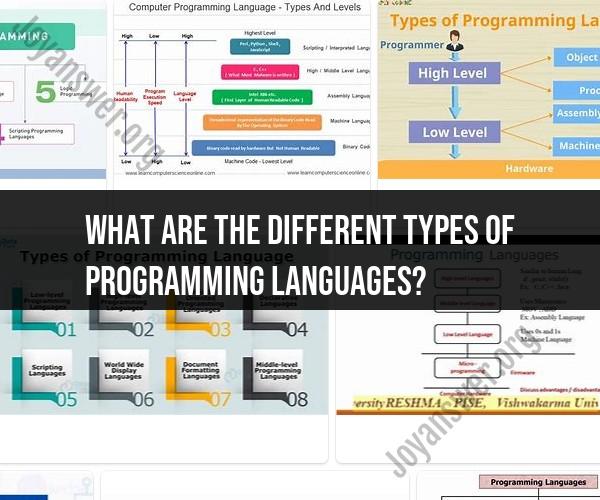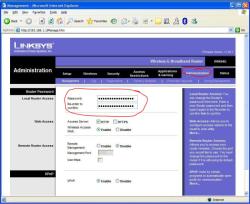What are the different types of programming languages?
Programming languages are tools that enable humans to communicate instructions to computers. There are numerous programming languages, each designed for specific purposes and with unique features. Here's a comprehensive guide to understanding the diversity of programming languages:
1. Categorization of Programming Languages:
- High-Level vs. Low-Level: High-level languages are more human-readable and abstract, while low-level languages are closer to machine code and provide more direct control over hardware.
- Procedural vs. Object-Oriented vs. Functional: Languages are often categorized based on their programming paradigms. Procedural languages focus on procedures and routines, object-oriented languages model data as objects with behaviors, and functional languages emphasize functions as the primary building block.
2. Popular Programming Languages:
- Python: Known for its simplicity and readability, Python is widely used in web development, data analysis, artificial intelligence, and more.
- Java: A versatile language used for building applications, including web, mobile, and enterprise systems.
- C++: An extension of C with object-oriented features, commonly used for system software, games, and performance-critical applications.
- JavaScript: Primarily used for web development to add interactivity and dynamic features to websites.
- Ruby: Often associated with web development and known for its elegant syntax.
- Swift: Developed by Apple for building iOS and macOS applications.
- C#: Developed by Microsoft and used for building Windows applications, games, and web services.
- PHP: Mainly used for server-side web development.
- R: Specifically designed for statistical analysis and data visualization.
- SQL: A language for managing and querying relational databases.
3. Specialized Languages:
- HTML/CSS: Not traditional programming languages, but essential for web development. HTML structures web content, while CSS styles and formats it.
- Assembly Language: Low-level language representing machine code instructions, often used for system programming.
- MATLAB: Primarily used for numerical and scientific computing.
- Lua: Often embedded in applications for scripting and customization.
- Haskell: A functional language known for its strong type system.
4. Domain-Specific Languages (DSLs):
- SQL: A DSL for querying and managing databases.
- Regular Expressions: A DSL for pattern matching within strings.
- Markdown: A DSL for formatting documents.
5. Evolving Languages:Programming languages continue to evolve to meet new challenges and technological advancements. For example, new languages like Rust focus on safety and performance, while Kotlin is gaining popularity as an alternative to Java for Android development.
6. Choosing a Language:The choice of programming language depends on factors such as project requirements, existing skills, community support, and the domain in which you intend to work.
7. Learning Resources:Numerous resources, including online tutorials, courses, books, and coding platforms, are available for learning programming languages.
8. Versatility and Application:Some languages are versatile and can be used for various purposes, while others are specialized for specific tasks (e.g., R for data analysis).
9. Trends and Industry Demand:The programming language landscape evolves based on industry trends, emerging technologies, and changing demands.
10. Polyglot Programming:Many developers work with multiple languages based on the requirements of different projects or tasks.
Understanding the diversity of programming languages allows developers to choose the best tool for the job and adapt to new technologies and challenges. The choice of language often depends on the specific problem you're solving, the platforms you're targeting, and the development environment you're working in.













